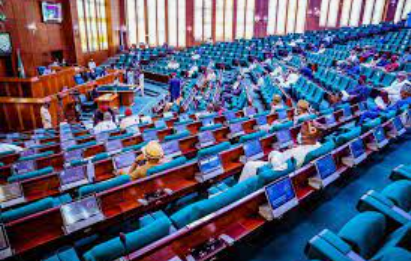On Thursday, the House of Representatives in Nigeria made a significant move toward increasing electoral inclusivity by approving a bill for first reading aimed at amending the 1999 Constitution. This proposed legislation, titled “A bill for an Act to alter the provisions of the Constitution of the Federal Republic of Nigeria, 1999 (As amended),” seeks to allow independent candidates to participate in elections for various offices, including presidential, governorship, National Assembly, State Houses of Assembly, and local government councils. The bill, introduced by Akin Rotimi, the House spokesperson and representative for Ikole/Oye Federal Constituency in Ekiti State, targets specific sections of the Constitution, aiming to pave the way for non-party-affiliated individuals to contest elections.
Among the key provisions is Section 7, sub-section 4A, which grants individuals eligible to vote the right to run for local government office without political party affiliation. This section signifies a marked shift in Nigeria’s political landscape, potentially dismantling the traditional barriers erected by political party sponsorship. Another crucial component is Section 4B, which outlines the requirements for independent candidates. For chairmanship elections, these individuals must secure the verified signatures of at least ten percent of registered voters across two-thirds of the electoral wards in a local government area. Similarly, candidates for councillorship positions must gather the appropriate endorsements from polling units, all subject to verification by the Independent National Electoral Commission (INEC) or State Electoral Commissions.
The recent push for this bill comes on the heels of an unsuccessful attempt during the 9th Assembly, where a similar proposal failed to garner the necessary approval from state legislatures. Rotimi emphasized the timeliness of this initiative, asserting that it would enable qualified individuals to pursue public office without the constraints traditionally imposed by political parties. He expressed the belief that allowing independent candidates to run will enhance Nigeria’s democratic process, as evidenced by practices in more established democracies where individuals often contest elections without party affiliation.
To qualify for participation in elections, independent candidates will need to demonstrate public support by collecting endorsements from a minimum percentage of registered voters in their intended constituency. Specifically, they will need to amass ten percent of backing distributed across at least two-thirds of the region. This requirement aims to ensure that independent candidates have a legitimate level of grassroots support before entering the electoral arena. Furthermore, Section 221 of the Constitution will be amended to task INEC with developing guidelines and regulations governing the nomination and electoral process for independent candidates, including the stipulation of a security deposit.
The broader implications of this bill extend beyond merely allowing independents to run for election; it signifies a push for democratization within Nigeria’s political framework. Ibijoke Faborode, Executive Director of the nonprofit organization ElectHer, highlighted the importance of this legislation in promoting greater access to the electoral process for a wider range of citizens. She asserted that the initiative aims to create a more level playing field, particularly benefiting traditionally marginalized groups such as women, youths, and persons with disabilities. By encouraging diverse participation in the political landscape, the proposed changes could help facilitate a more representative and inclusive government.
In summary, the bill approved by the House of Representatives marks a potential turning point in Nigeria’s electoral politics by challenging the existing, party-dominated system. By enabling independent candidates to vie for elective positions, the legislation seeks to foster a stronger, more representative democratic process. This initiative not only highlights the legislative branch’s recognition of the need for political inclusivity but also reflects a broader desire for reform within Nigeria’s political system. If successfully enacted, the bill has the potential to transform the electoral landscape, allowing a greater diversity of candidates and ideas to emerge, thereby enriching Nigeria’s democracy.














